Nicht nur dein Darm ist Teil deines Mikrobioms – Das Mikrobiom ist in seiner Gesamtheit als Organ wahrzunehmen
Mit dem 2014 veröffentlichten Bestseller “Darm mit Charme” von Giulia Enders wurde auch der größeren Öffentlichkeit bewusst, dass der Darm ein unterbewertetes Organ ist. Ihm müsse mehr Aufmerksamkeit entgegengebracht werden, denn die vielen in ihm vorhandenen Mikroorganismen beeinflussen in hohem Maße unsere Gesundheit und sogar unsere Stimmungen. Wir müssen aufhören gegen unseren Darm und seine Bakterien zu kämpfen und anfangen mit ihm in einer liebevollen Symbiose zu leben.
Nach neuesten Forschungen ist nicht nur der Darm, sondern das gesamte Mikrobiom als Organ wahrzunehmen. Das Mikrobiom beschreibt alle Mikroorganismen, die unseren Organismus besiedeln. Insbesondere alle Darmbakterien, also die Darmflora, aber auch die Mikroorganismen, die Haut, Mund- und Nasenhöhle, sowie die Schleimhäute bewohnen. Dieses komplexe Gebilde sorgt nicht nur dafür gesunde Mikroorganismen zu tolerieren, sondern wehrt zusätzlich Schädlinge ab. Daher ist es enorm wichtig ein Lebensstil zu pflegen, der dem Mikrobiom unterstützend zur Seite steht und es ihm nicht unnötig schwer macht.
Ein unausgeglichenes Mikrobiom kann das Immunsystem und den Stoffwechsel negativ beeinflussen. Auch das menschliche Gehirn und die menschlichen Gene kommunizieren stetig mit dem Mikrobiom und beeinflussen unsere körperliche und psychische Gesundheit. Besonders fehlende Diversität im Mikrobiom kann schädliche Keime befeuern und zu verschiedenen Krankheiten führen.
Wusstet du, dass schon während der Geburt dem Säugling von der Mutter eine Art mikrobielles Programm überspielt wird, das eine maßgebliche Rolle bei der Entwicklung des Immunsystems und späteren Krankheiten spielt? Wir sind also gar nicht so selbstbestimmt wie wir denken!

Woran könntest du ein unausgeglichenes Darm Mikrobiom erkennen?
- häufige Blähungen
- Durchfall
- Bauchschmerzen
- Verstopfungen
- ständige Müdigkeit und Abgeschlagenheit
- verschiedene Nahrungsmittelunverträglichkeiten
- Schilddrüsenerkrankungen
- Gewichtsprobleme
- Depressive Stimmungen

Wie kannst du insbesondere dein Darm-Mikrobiom unterstützen?
Es gibt eine Reihe von Lebensmitteln, die das Darm-Mikrobiom positiv beeinflussen können. Sie vermehren Bakterien mit z.B. entzündungshemmenden Wirkungen und können vor chronischen Krankheiten schützen. Eine ausgewogene Ernährung mit vielen pflanzlichen Nahrungsmitteln und Ballaststoffen und gut ausgewählten Probiotika und Präbiotika helfen dem Mikrobiom im Gleichgewicht zu bleiben. Dabei ist nicht nur die Wahl zum richtigen Lebensmittel wichtig, sondern auch die Art, wie dieses Lebensmittel in unserem Darm verwertet werden kann. Schaut man ein wenig über den Tellerrand wird schnell klar, dass auch chronischer Stress und wenig Bewegung Einfluss auf das Mikrobiom haben. Auch häufige Antibiotika Einnahmen können von einem auf den anderen Tag einen großen Schaden anrichten und sind mit Vorsicht zu genießen.
Das mag dein Mikrobiom nicht so gerne:
- Weißmehl
- Zucker
- zu viel Fleisch und Wurst
- künstliche Süßstoffe
- Konservierungsstoffe und künstliche Zusatzstoffe
- zu hoher Anteil an verarbeiteten Lebensmitteln
- Alkohol
Lebensmittel für ein ausgeglichenes Mikrobiom
- Ballaststoffreiche Lebensmittel
- viel frisches Obst und Gemüse
- Vollkornprodukte
- Hülsenfrüchte
- gesäuerte Milchprodukte

Fermentierte Lebensmittel und Getränke
- Sauerkraut
- Fermentiertes Gemüse
- Kimchi
- Wasserkefir
- Milchkefir
- Kombucha
Fermentierte Lebensmittel sind die perfekte kleine regelmäßige Unterstützung für dein Mikrobiom und können helfen eine Vielfalt von nützlichen Bakterien in deiner Darmflora aufzubauen. Unser Kombucha ist die perfekte Alternative zu herkömmlichen Erfrischungsgetränken, die dich zusätzlich mit Probiotika und vielen wichtigen Nährstoffen versorgt und dazu noch lecker schmeckt. Auf jeden Fall besser als regelmäßig Sauerkraut zu essen! Wichtig dabei ist immer, dass du unpasteurisierten Kombucha kaufst, der keine künstlichen Zusätze beinhaltet.
Probiotika
wie Laktobazillen, Bifidobakterien, Enterokokken, Escherichia coli, Hefekulturen…
- verdrängen krankmachende Keime
- regulieren die Verdauung
- stärken die Darmbarriere
- helfen dem Immunsystem im Darm
Präbiotika
wie Inulin, Frukto-Oligosaccharide (FOS), Galakto-Oligosaccharide (GOS) und Inulin…
- unterstützen die Vermehrung von guten Darmbakterien
- wirken sich positiv auf dein Darmmilieu aus
- sind gut für deine Verdauung
FOS und Inulin sind z.B. in Artischocken, Lauch, Chicorée, Knoblauch, Weizen, Zwiebeln und unreifen Bananen enthalten.

Lifestyle für dein gesundes Mikrobiom
Oft bemerken wir im Alltag gar nicht, dass sich verschiedene kleine schlechte Angewohnheiten am Ende summieren und zu gesundheitlichen Beschwerden führen können. Achte immer darauf, dass du…
- ausreichend Wasser trinkst
- langsam kaust und bewusst isst
- nicht zu unregelmäßig Mahlzeiten zu dir nimmst
- regelmäßige Bewegung in deinen Alltag integrierst
- Stress vermeidest, durch z.B. Meditation oder Yoga
Oft wird der Körper als eine simple Maschine verstanden und nicht gesehen wie komplex und einzigartig er doch ist. Jeder Mensch ist genetisch anders aufgestellt und auch jedes Mikrobiom agiert unterschiedlich. Genau wie im Leben, gibt es nicht für alle ein bestimmtes Wunderrezept. Eines ist aber sicher!
Sich der Komplexität des Mikrobiom bewusst zu sein und ab und zu in sich zu horchen, sowie kleine nützliche Routinen in seinen Alltag zu integrieren hilft enorm seinen Körper zu stärken und unnötige Krankheiten zu vermeiden.

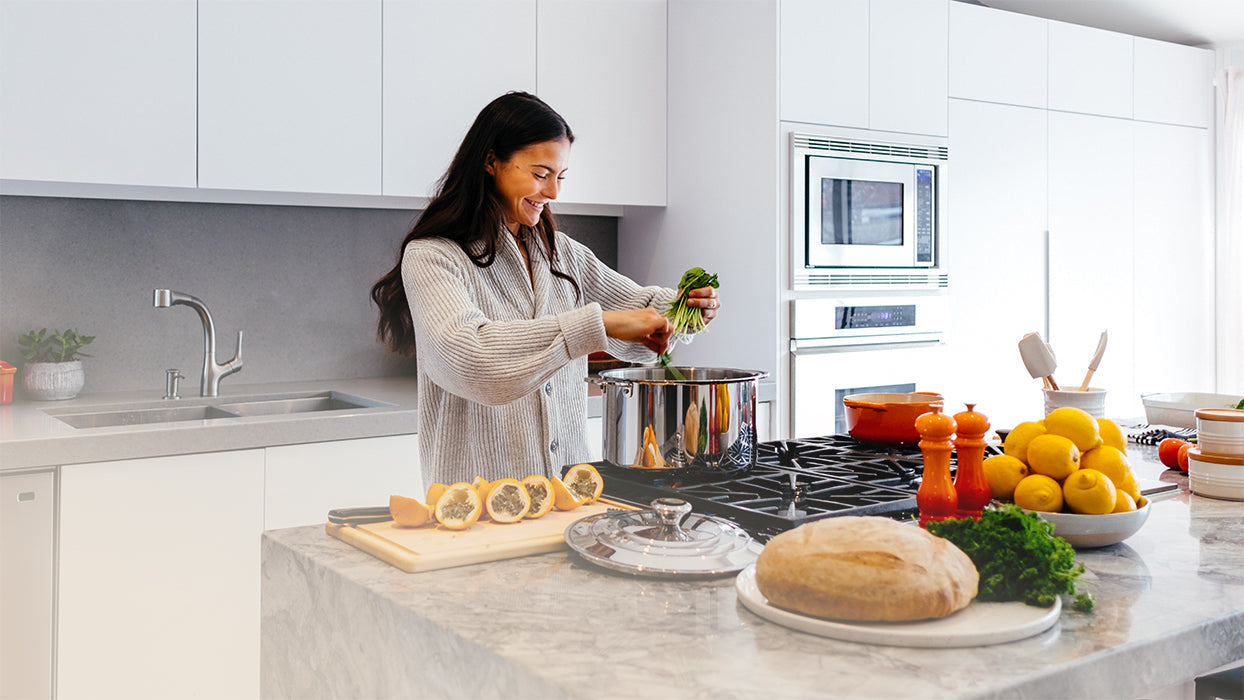
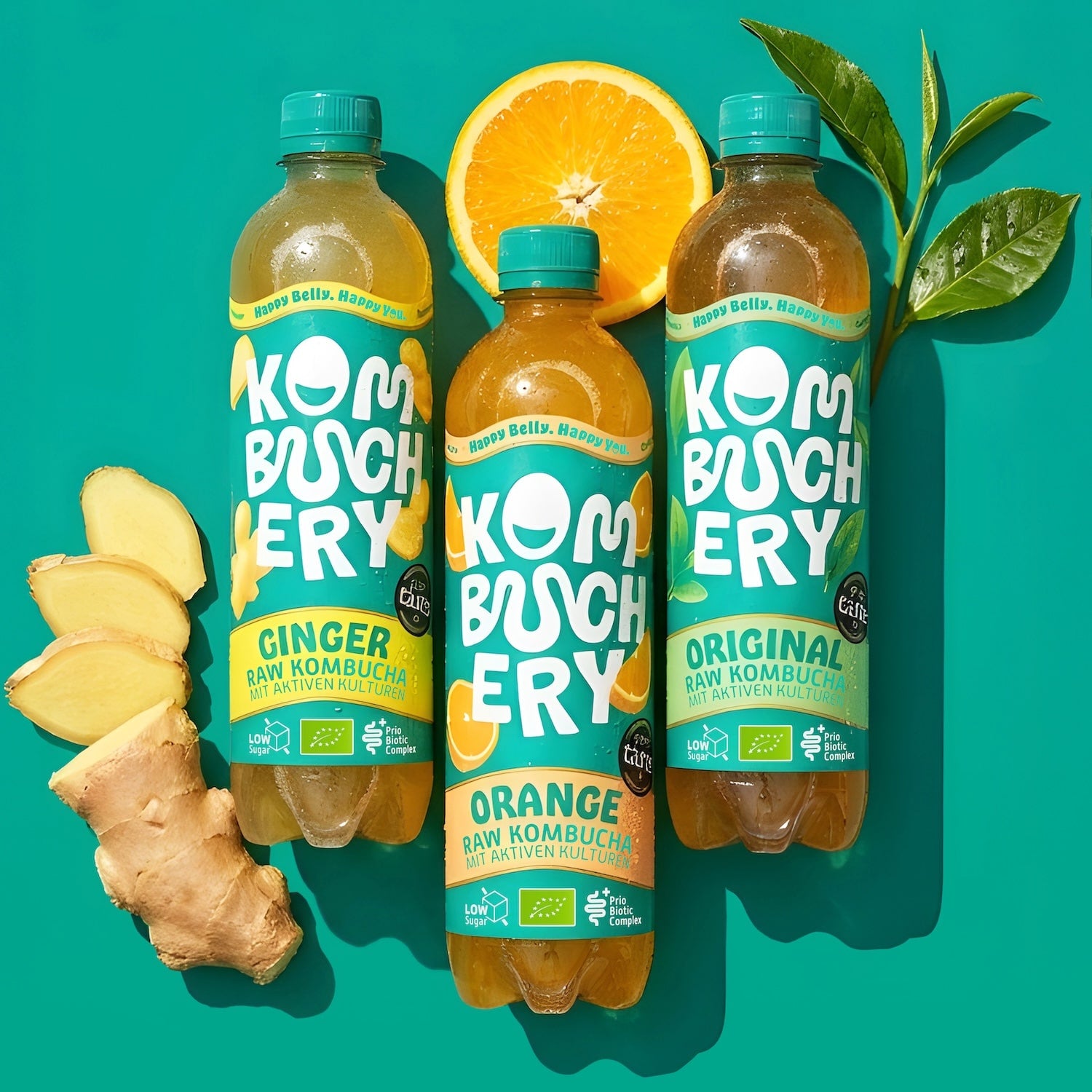
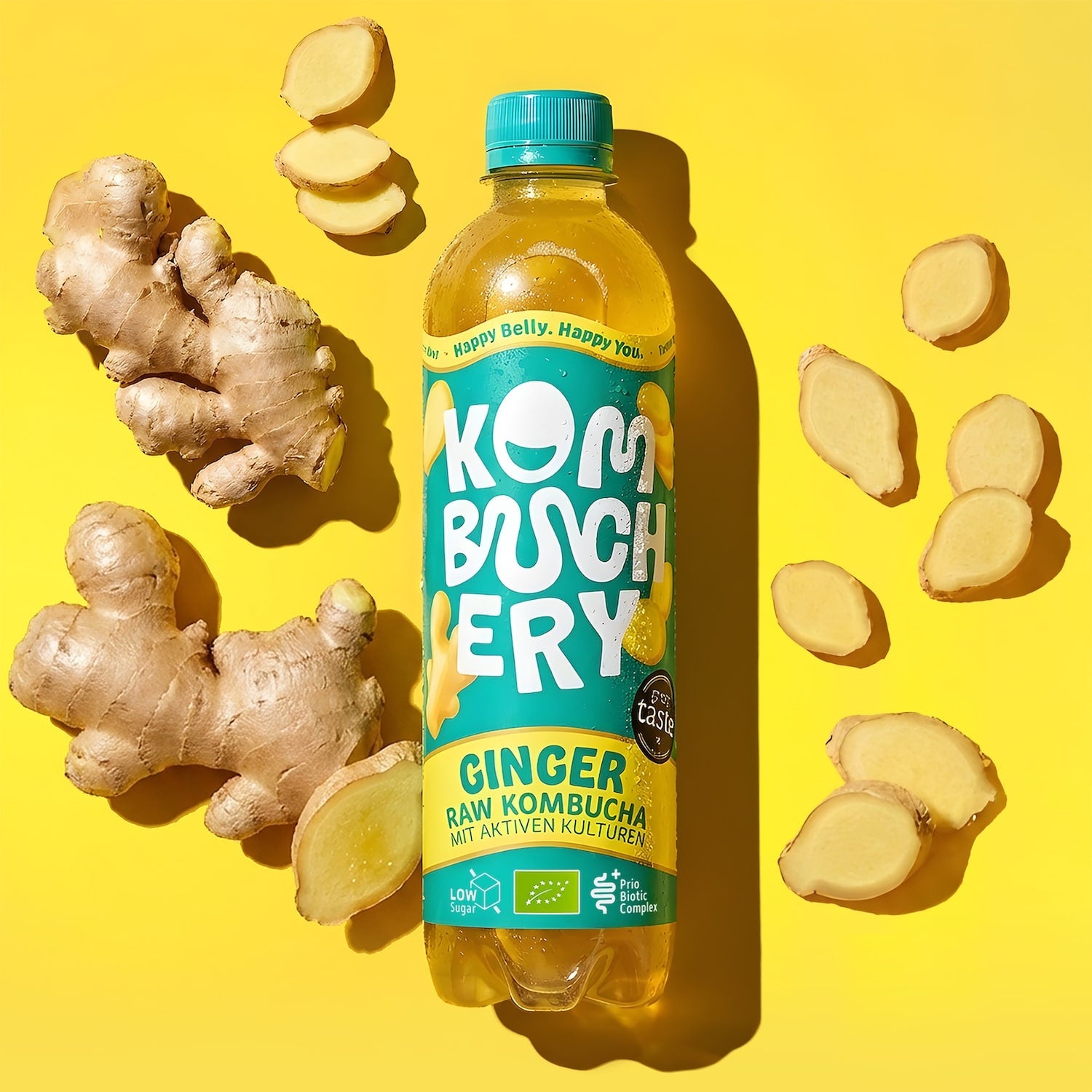
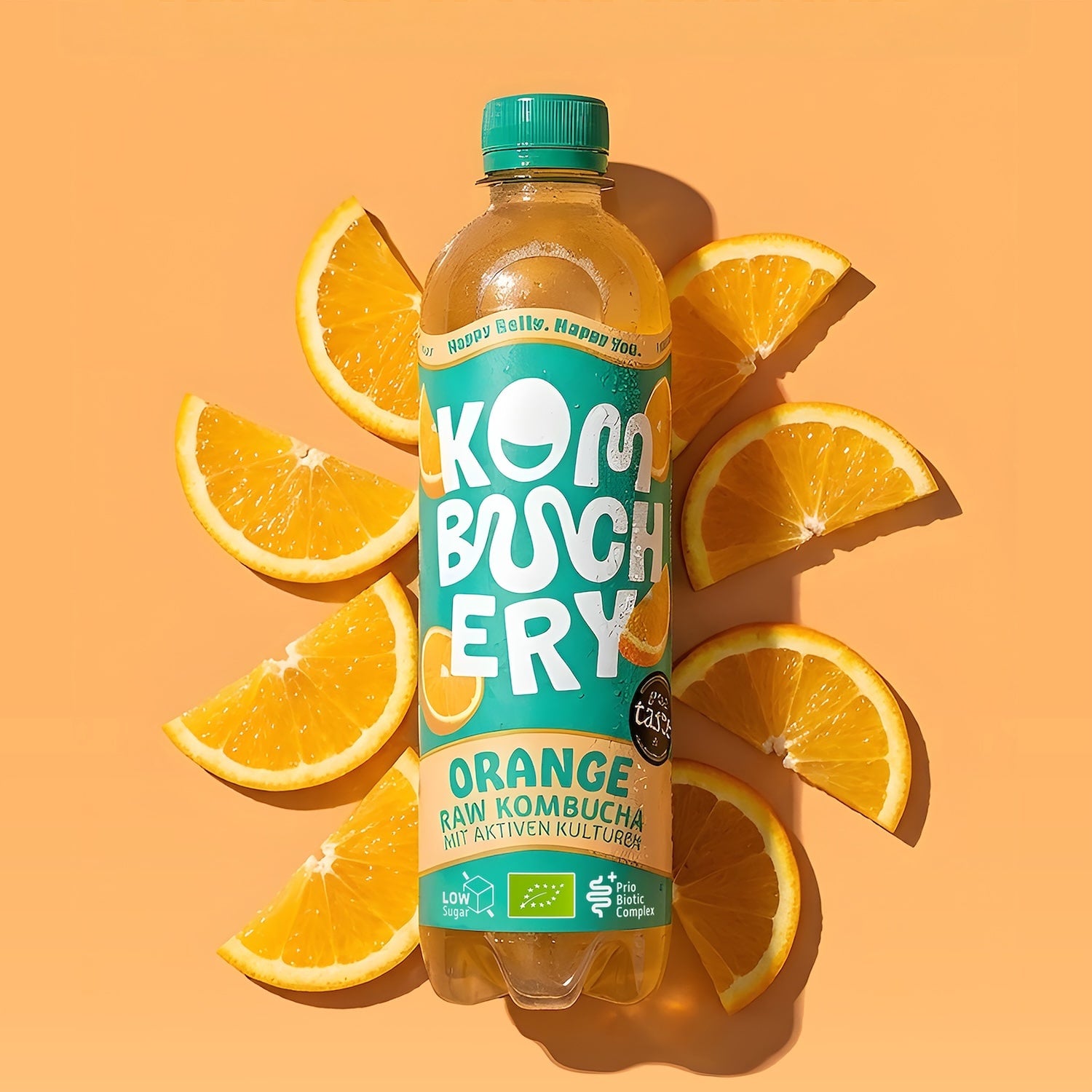
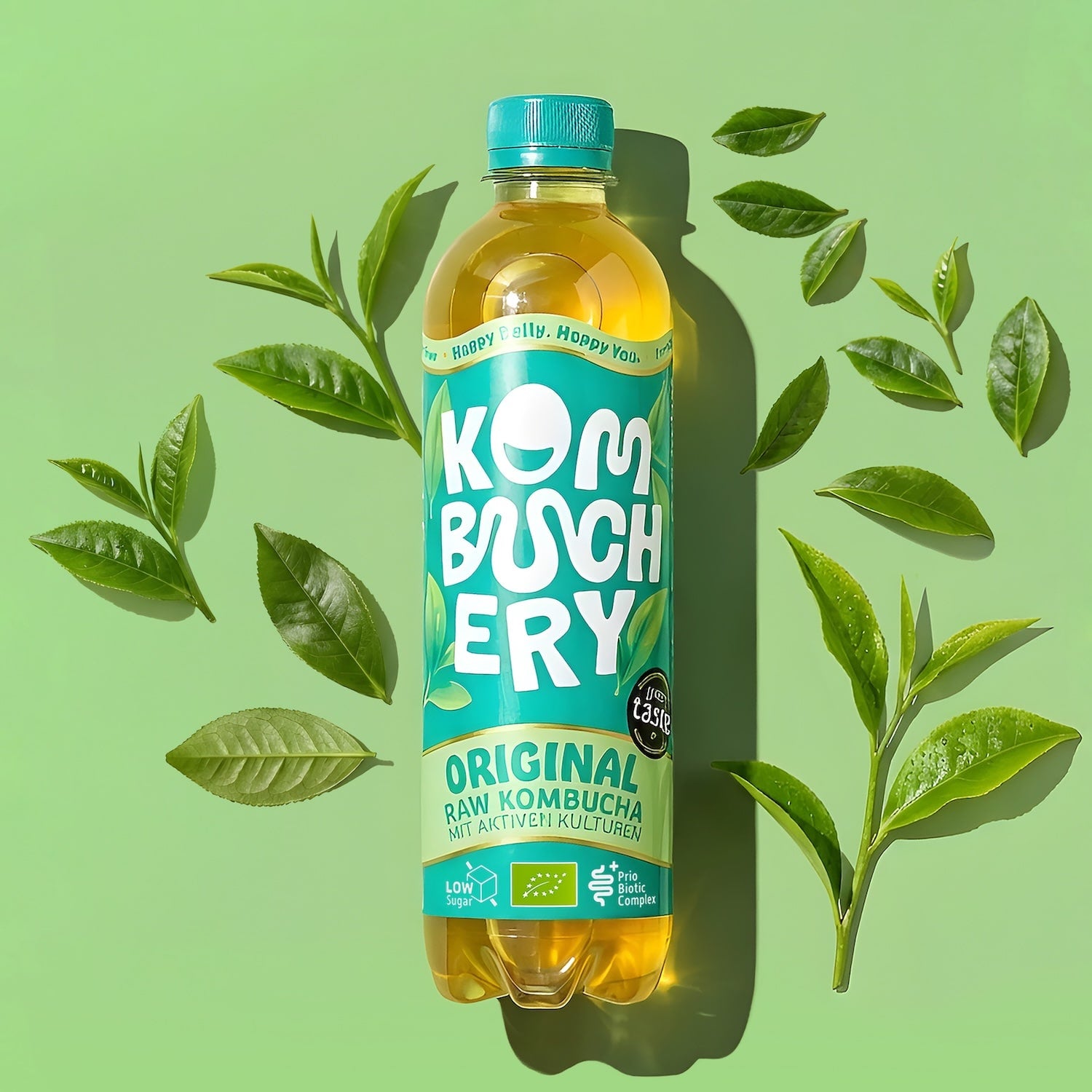
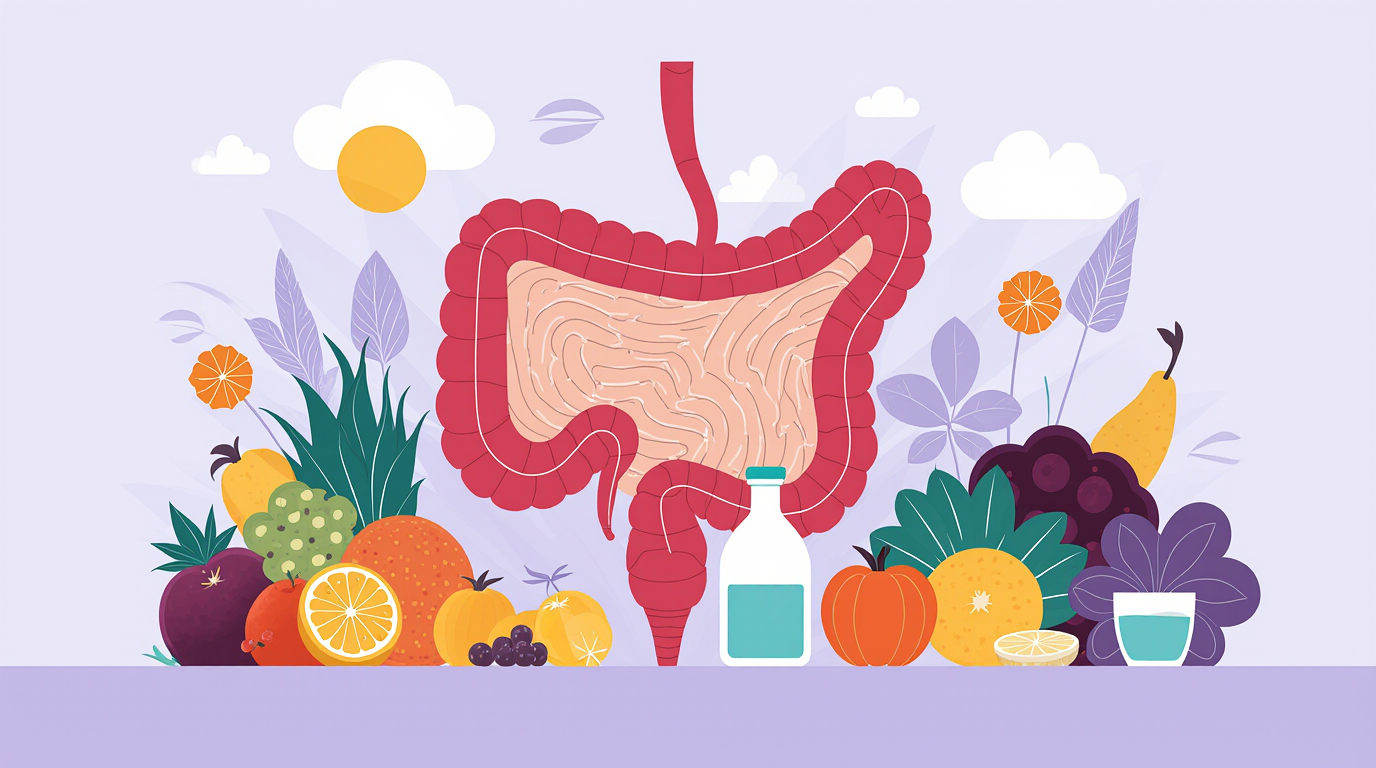
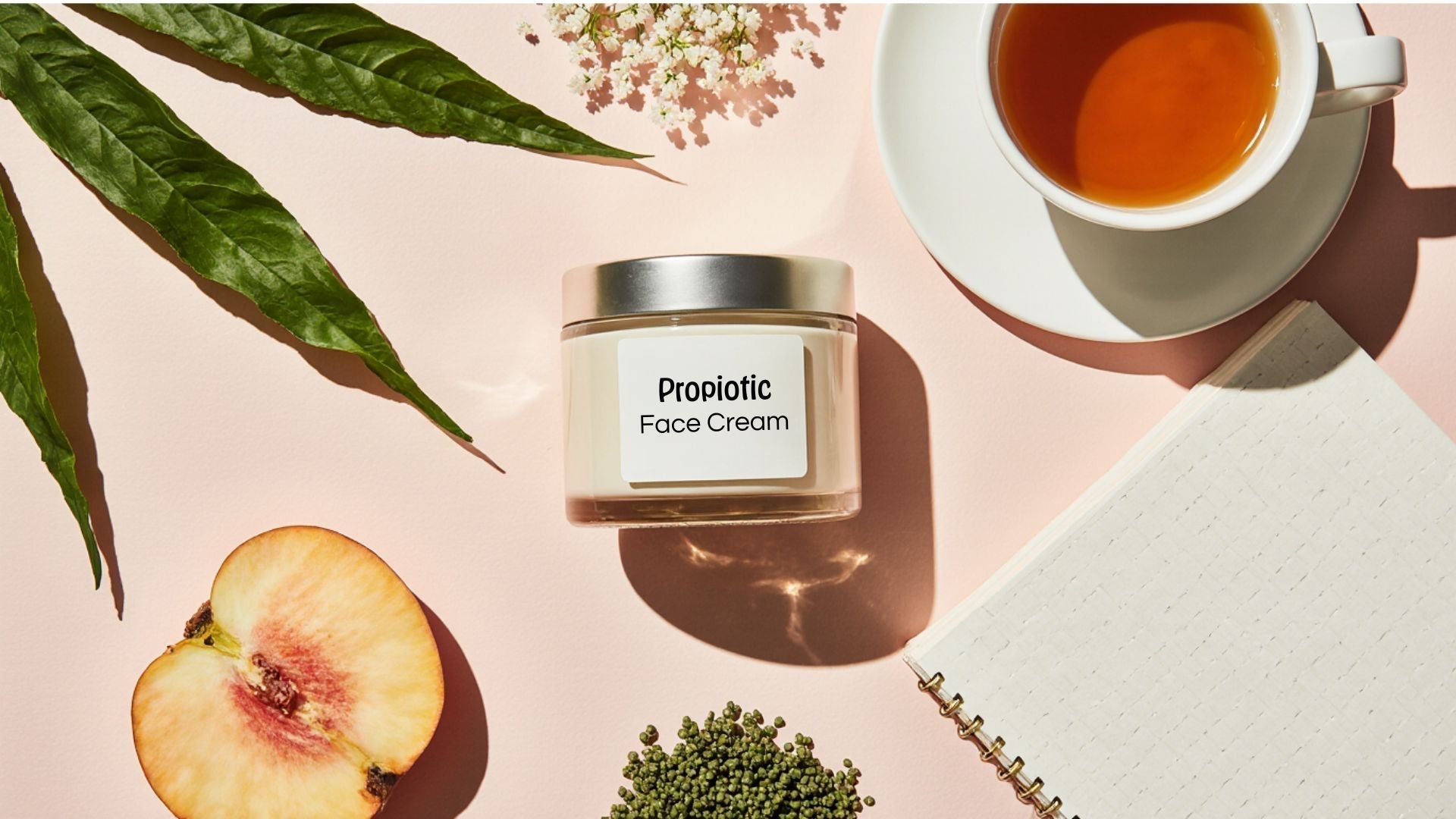
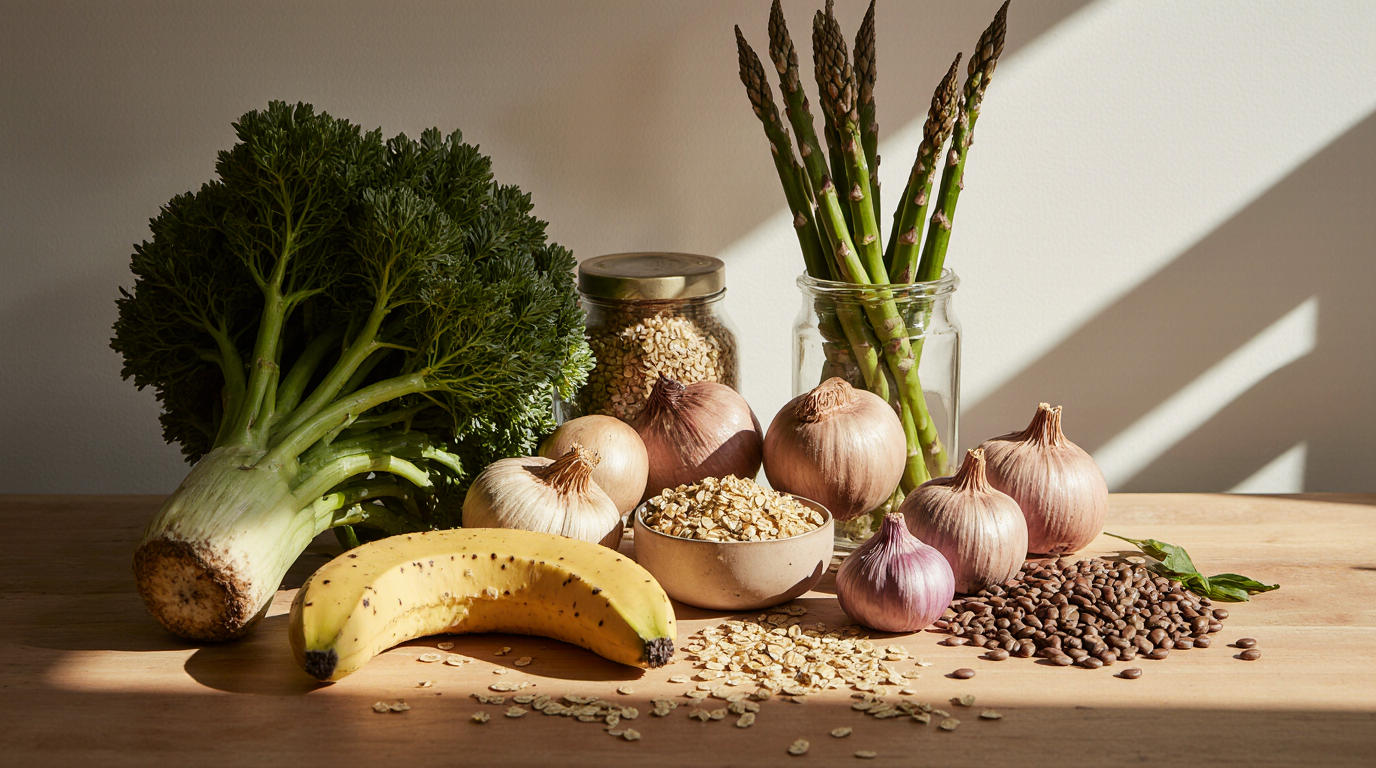

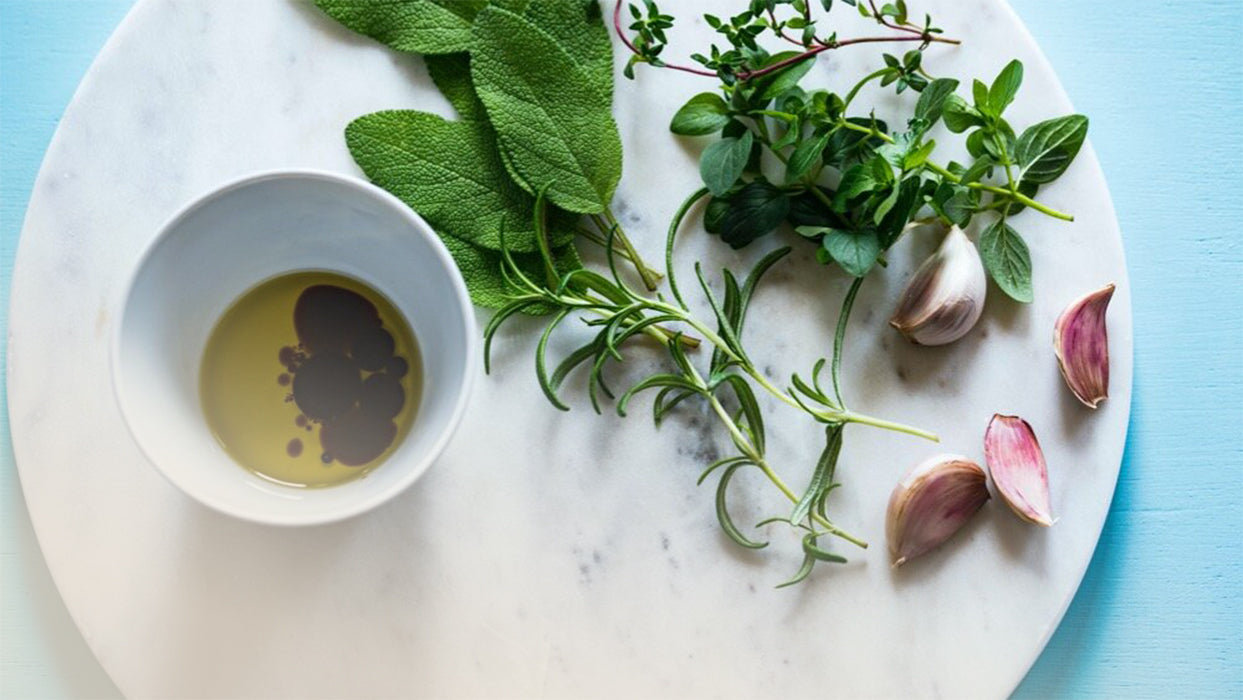

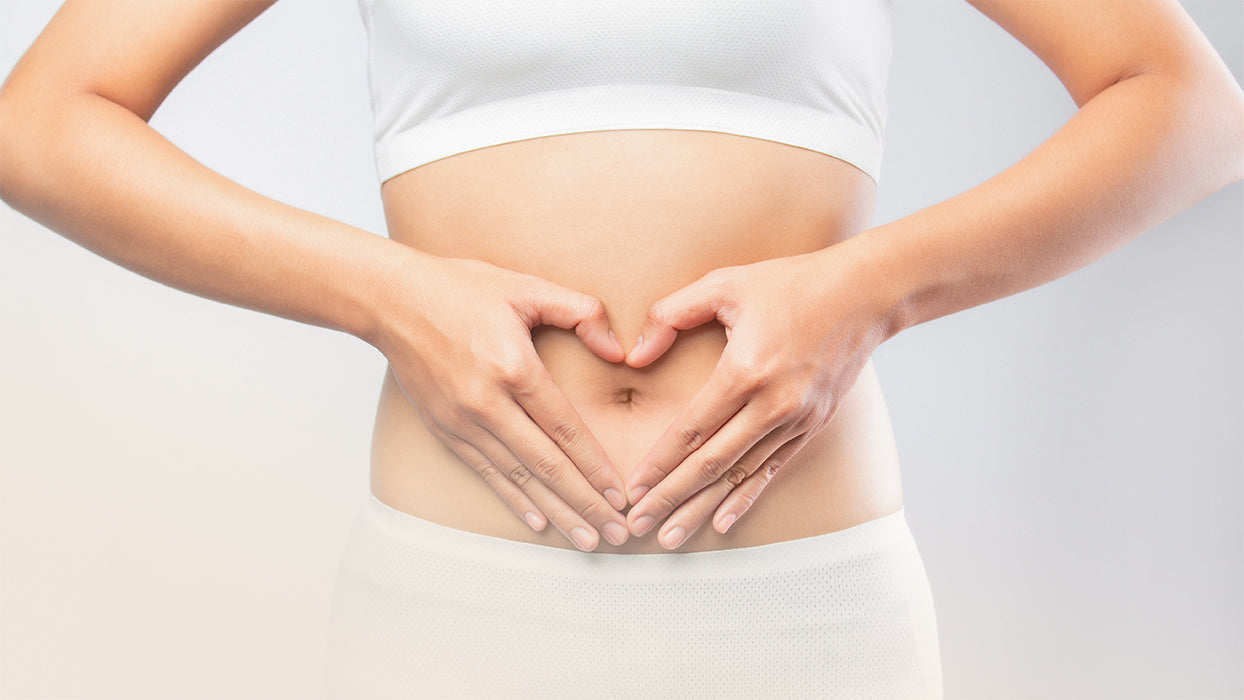
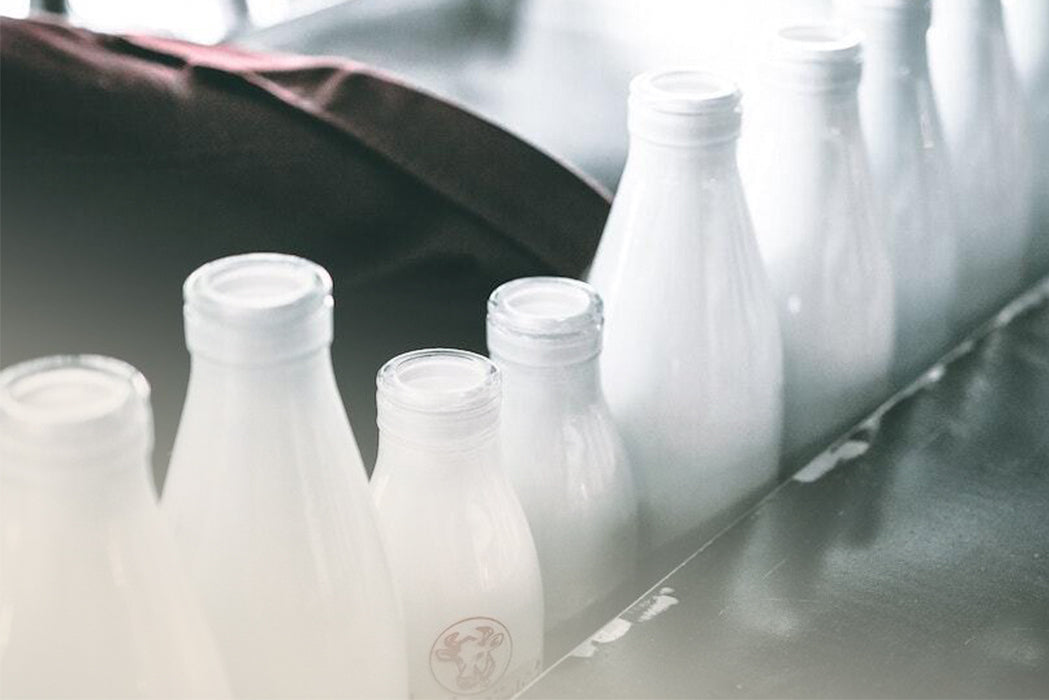
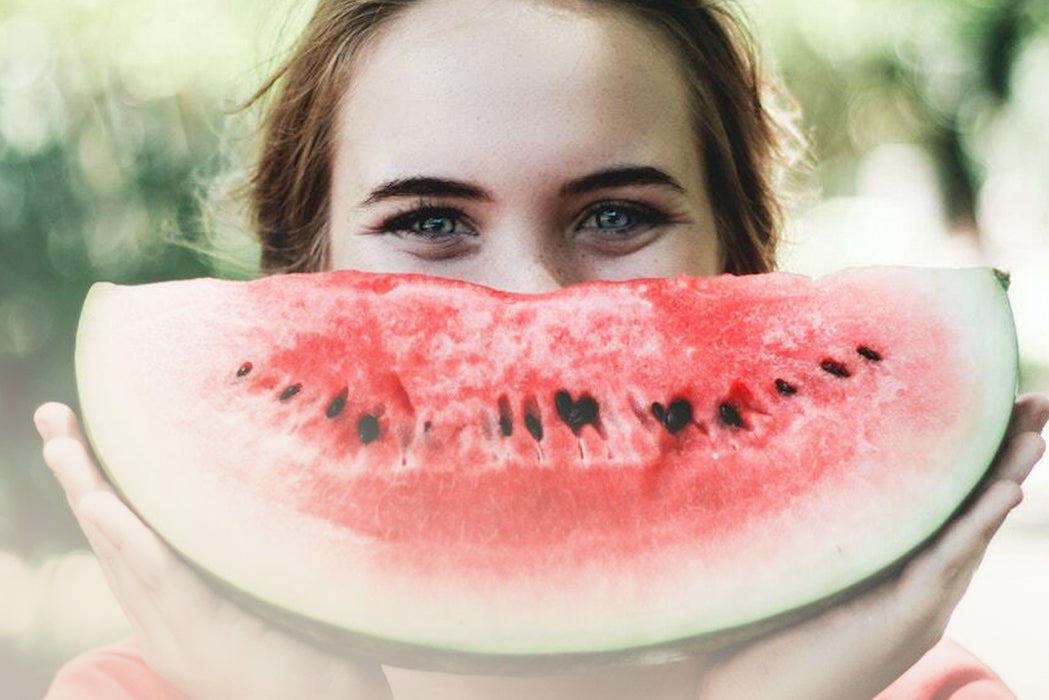
Teilen: